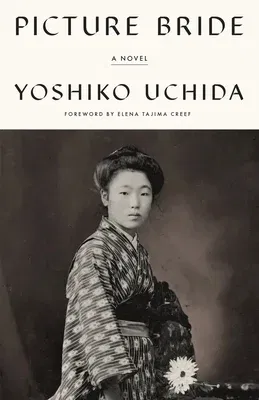Yoshiko Uchida
(Author)Picture BridePaperback, 6 September 2022

Qty
1
Turbo
Ships in 2 - 3 days
Only 5 left
Free Delivery
Cash on Delivery
15 Days
Free Returns
Secure Checkout

Part of Series
Classics of Asian American Literature
Print Length
256 pages
Language
English
Publisher
University of Washington Press
Date Published
6 Sep 2022
ISBN-10
0295751126
ISBN-13
9780295751122
Description
Product Details
Author:
Book Format:
Paperback
Country of Origin:
US
Date Published:
6 September 2022
Dimensions:
21.59 x
13.97 x
1.47 cm
ISBN-10:
0295751126
ISBN-13:
9780295751122
Language:
English
Location:
Seattle
Pages:
256
Publisher:
Weight:
331.12 gm